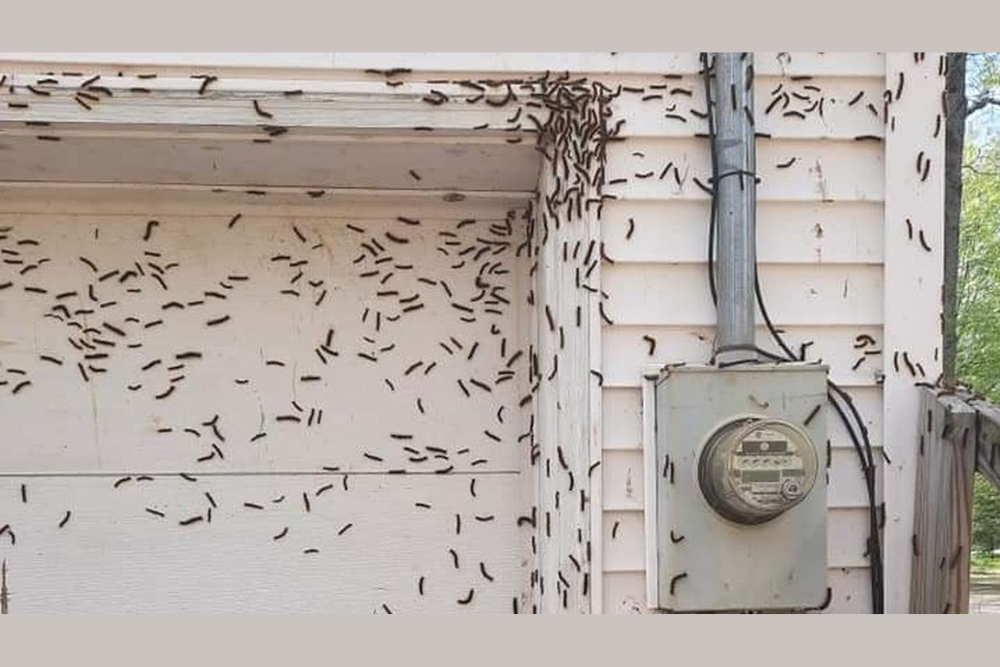Spongy Moth Damage
Spongy moth caterpillars have wreaked havoc in Walworth County, causing many homeowners concern about their trees. Oaks are a preferred food source, but the caterpillars have also been attacking maple, birch, and conifers. Fortunately, the caterpillars will be gone soon ... for this year. Here's what you need to know.
What should I do right now?
Please do not panic! Unfortunately, widespread outbreaks are beyond human control. We need the weather and predators to do the job naturally. We are past the time for any type of canopy spraying options. Use extreme caution if you choose to purchase products or services that claim to manage spongy moths. Many chemical products, especially pyrethrin and other pyrethroids, are extremely toxic to beneficial insects, including pollinators, as well as wildlife, aquatic life, and the environment. These products and services have the potential to cause more harm. If a product is labeled "to kill caterpillars," that means it is killing all types, even the ones we want to keep.
What's next?
The spongy moth caterpillars will be gone in a week or so. Remember, these particular caterpillars have already caused the damage for this year (adults do not feed). Spongy moth caterpillars will begin to form cocoons and pupate, emerge as adults moths, lay eggs and die. Watch for where the moths are laying egg masses in July. If you are seeing 25-plus egg masses on a large oak tree then it is likely you will have defoliation the following spring. Treat egg masses from fall through winter (all the way up to next spring) or hire a certified arborist to do so to help prevent damage next spring. Treat egg masses by soaking them with horticultural oil or carefully scraping them off and soaking in soapy water for two days.
I have many trees on my property, should I be worried?
The spongy moth caterpillars have been voracious feeders and trees are defoliated, which is understandably concerning. However, healthy trees and shrubs are likely to survive. Healthy trees will flush out a second set of leaves this summer. It is helpful to provide supplemental water to your trees during dry conditions. When this is not feasible with wooded acreage, consider a low flow soaker hose near them to protect high value trees.
For questions about spongy moths or other gardening questions, please contact Julie Hill, Horticulture Outreach Specialist at julie.hill@wisc.edu or by calling the UW-Extension Walworth County office at (262) 741-4958.
Also, UW-Extension Master Gardeners attend the Lake Geneva Farmers Market every Thursday morning to answer gardening questions.
Source: https://www.co.walworth.wi.us/CivicAlerts.aspx?AID=311






 Alerts Sign-up
Alerts Sign-up